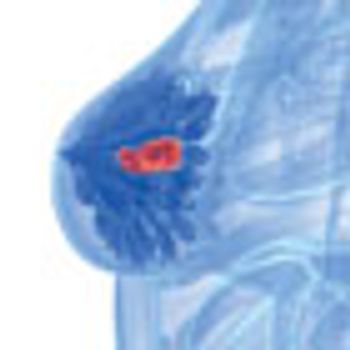
The use of social media is now so widespread that professional healthcare organizations have developed guidelines for its use.

The use of social media is now so widespread that professional healthcare organizations have developed guidelines for its use.

Finding treatment options, helping patients, and contributing to clinical research just got easier.

The addition of docetaxel to standard hormonal therapy significantly improved survival among men with newly diagnosed, hormone-naïve advanced prostate cancer.

For those with a history of non-melanoma skin cancer, reducing their risk of recurrence can be as simple as taking the vitamin B3 pill nicotinamide.

Statin use before or after a diagnosis of lung cancer may be linked to a reduced risk of death from the disease, according to findings of a recent study which found that patients who used statins in the year before a lung cancer diagnosis had a statistically significant 12% reduction in lung cancer-specific deaths.

The month of May is Lung Cancer Hope Month, and here are just 5 reasons we can all be hopeful.

Risk of developing high-risk prostate cancer higher than control group.

E-cigarettes, championed by some as a smoking-cessation tool, may actually decrease the likelihood of quitting smoking, according to a recent population-based study of 1000 smokers published in The American Journal of Public Health.

Being recognized as a lung cancer advocate made me realize how important even the smallest role in this fight can be.

Ensuring that pegfilgrastim (Neulasta) is administered at the optimal time for the prevention of neutropenia and febrile neutropenia can pose a challenge for busy healthcare practitioners (HCPs).

Women who are at high risk of ovarian cancer are more likely to undergo preventive ovary removal if they are proactively offered genetic counseling, a new study has found.

Jacquelyn Lauria said she never thought she'd become an oncology nurse, but looking back, it's easy to see the writing on the wall.

Documentary film will be shown on May 6th at 150 theaters nationwide.

Treatment strategies for patients with myelodysplastic syndromes are built upon a foundation of supportive care, which consists of transfusions, iron chelation, and growth factor therapy.

Lynch syndrome (LS) is a hereditary syndrome that causes a marked increased risk of colorectal and other cancers. It is inherited in an autosomal dominant pattern, which means that it is due to a mutation in one copy of a gene (in LS, a DNA mismatch repair gene).

Omega-3 may be harmful when taken in conjunction with chemotherapy.

Being a caregiver in the ER is usually pretty awful. It feels like I'm always in the way.

Free online resource available.

Breast density, which is associated with breast cancer risk, is higher in black/African-American women than in white women, according to research presented at the AACR Annual Meeting.

Newly reported findings from a randomized phase III vaccine efficacy trial demonstrate that HPV vaccination may offer protection against HPV-related cancers across multiple tumor sites in women aged 18-25 who had been previously exposed to the human papillomavirus, with the vaccine effective in more than half of these women.

The PD-L1 inhibitor MPDL3280A demonstrated a 19% objective response rate (ORR) with 75% of responses ongoing in pretreated patients with metastatic triple-negative breast cancer (TNBC), according to findings from an ongoing phase I study presented at the 2015 AACR Annual Meeting.

A recent study joins a body of evidence suggesting that long-term, regular aspirin use is associated with a reduced risk for cancer, with the most dramatic reduction being seen in colorectal cancer incidence.

Pembrolizumab (Keytruda) had an overall response rate (ORR) of 45.2% among a cohort of patients with high PD-L1-expressing non–small cell lung cancer (NSCLC) in the phase I KEYNOTE-001 trial.

New research reported at the AACR Annual Meeting has found that decreasing the number of hours spent eating each day and increasing the number of hours spent fasting overnight may reduce a woman's risk of developing breast cancer.

The award honors exceptional nurses who have been nominated through personal essays from patients, families, and coworkers.

A new study has shown that vaccinating adolescent boys may be cost-effective for preventing oropharyngeal cancer, a disease that's projected to become the most common HPV-related cancer by 2020.

A new study has found that obesity is associated with an increased risk for prostate cancer in African American men, a risk that grows by nearly four times as an individual's body-mass index (BMI) increases.

Clinical Trials tend to be an affordable opportunity for patients looking to explore alternative treatment options. Here's all you need to know about the ins and outs of clinical trials.

A new telephone-based intervention for breast cancer survivors is showing promise, and it involves them becoming more actively engaged in goal setting and problem solving with an eye toward accelerating their recovery by engaging in health-promoting activities such as exercise, stress management, and healthy eating.

Maggie is currently the Founder and CEO of the nonprofit organization, Help Keep a Sister Alive (HKASA) whose website (helpkeepasisteralive.org) assembles, in one place, information to help patients, survivors, caretakers, friends and family cope with ovarian cancer and other cancers affecting women.